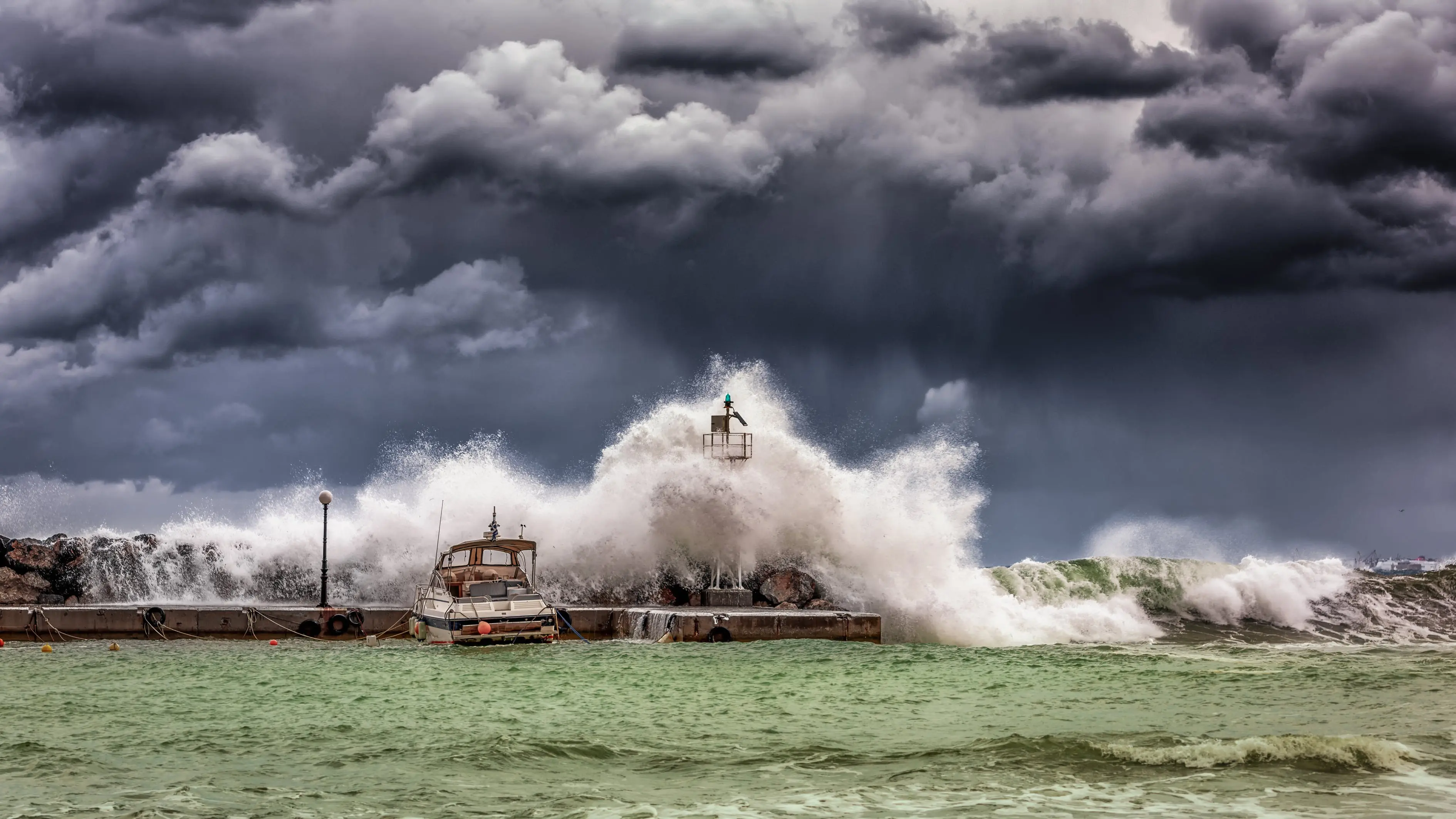Hurricane Katrina was a devastating and deadly hurricane, which significantly impacted coastal regions of the southeastern United States, particularly in Louisiana. The damage was especially substantial in New Orleans and the surrounding region. Flooding that followed the initial storm surge, which was mainly caused by significant engineering failures within the levees that were built around the city (Robertson & Schwartz, 2015). This flooding led to the majority of loss of life throughout the disaster. An estimated 1,836 people lost their lives during the hurricane and the floods that followed the initial storm (CNN Library, 2018). The property damage resulting from the hurricane was estimated to be approximately $125 billion (Knabb, Rhome, & Brown, 2005). The majority of the transportation and communication systems within New Orleans were either damaged or completely destroyed by the initial storm surge or subsequent flooding. Thousands of people who did not or could not be evacuated from the city before the hurricane hit land were stranded throughout the city with insufficient amounts of food, shelter, and basic human necessities.
Numerous investigations after the hurricane found that the U.S. Army Corps of Engineers was accountable for the breakdown of the levee systems (Robertson & Schwartz, 2015). That particular section of the U.S. Army was the organization that designed and constructed the levee system decades prior to the storm. However, U.S. federal courts ruled that the Army Engineers were not financially responsible for the failure of the levees due to the provision of sovereign immunity within the Flood Control Act of 1928 (Nossiter, 2008).
The aftermath of the storm brought about broad criticism and subsequent investigations into emergency response procedures related to federal, state, and local governments. These criticisms and investigations resulted in the resignations of numerous leaders that were in positions of authority within organizations that dealt with the handling and management of Katrina. Furthermore, there is a myriad of ethical dilemmas and concerns related to events prior to Katrina happening, the response of local, federal and international organizations during the disaster as well as responses related to aftermath of the storm. These ethical dilemmas extend far beyond the scope of this discussion, but a few of the critical aspects will be discussed.
One study related to Katrina specifically stated that “not only did the apparatus of the state not prevent the disaster from occurring in the first place, nor did it provide any timely positive benefits to the afflicted. Seemingly, it reserved whatever efficiency it could muster for the task of preventing private institutions from serving this function” (Rockwell & Block, 2010). The previously mentioned opinion is obviously a scathing review of governmental organization’s response to the disaster. Regarding social responsibility, the state and federal government of the U.S. failed at a considerable level in their duty to protect the citizens of not only the state of Louisiana, but as far as the federal government is concerned, citizens of the United States. One variable that seemingly significantly affected the ability and readiness of responder disasters was a lack of effective communication. Additionally, there were insufficient resources and many of the volunteers that were sent to assist in various aspects of the aftermath lacked proper training (U.S. House of Representatives, 2006).
Hurricane Katrina has had a tremendous effect on the ethical culture of the United States and on society as a whole. Topics related to the management of emergency situations, environmental policies, and socio-cultural issues were emphasized as a result of the disaster. Analysis of the initial response and of the wider state and federal policy considerations possibly had an effect on political elections and legislation within numerous governmental agencies and offices. The Congressional investigation into the disaster indicated that FEMA and the Red Cross lacked “logistics capacity sophisticated enough to fully support the massive number of Gulf coast victims” (U.S. House of Representatives, 2006). Additionally, the investigation held organizations and departments within all levels of the government responsible for the disaster.
References
CNN Library. (2018, August 30). Hurricane Katrina Statistics Fast Facts. Retrieved June 04,
2019, from https://edition.cnn.com/2013/08/23/us/hurricane-katrina-statistics-fast-facts/index.html
Knabb, R., Rhome, J., & Brown, D. (2005, December 20). Tropical Cyclone Report: Hurricane
Katrina. Retrieved June 05, 2019, from https://www.nhc.noaa.gov/data/tcr/AL122005_Katrina.pdf
Nossiter, A. (2008, February 01). In Court Ruling on Floods, More Pain for New Orleans.
Retrieved June 05, 2019, from https://www.nytimes.com/2008/02/01/us/01corps.html?_r=2&ref=us
Robertson, C., & Schwartz, J. (2015, May 23). Decade After Katrina, Pointing Finger More
Firmly at Army Corps. Retrieved June 03, 2019, from https://www.nytimes.com/2015/05/24/us/decade-after-katrina-pointing-finger-more-firmly-at-army-corps.html
Rockwell, L., & Block, W. E. (2010). The Economics and Ethics of Hurricane Katrina. American Journal of Economics and Sociology, 69(4), 1294-1320. doi:10.1111/j.1536-7150.2010.00745.x
U.S. House of Representatives. (2006). A Failure of Initiative: Final Report of the Select Bipartisan Committee to Investigate the Preparation for and Response to Hurricane
Katrina (pp. 1-520, Rep.). Washington, D.C.: U.S. Government Printing Office. Doi:http:www.gpoacess.gov/congress/index.html








